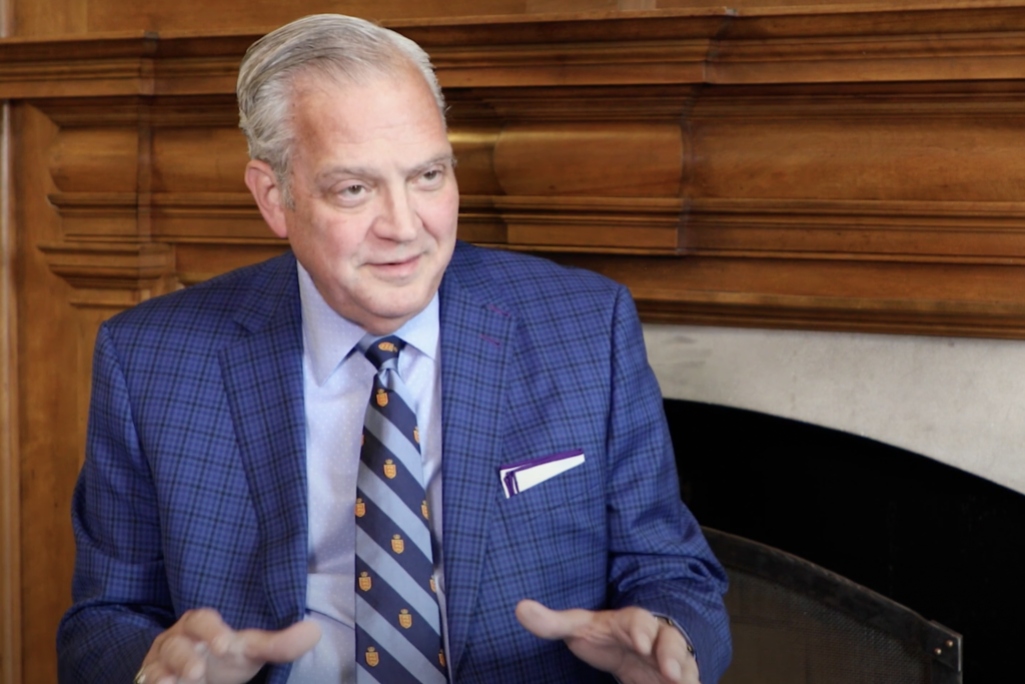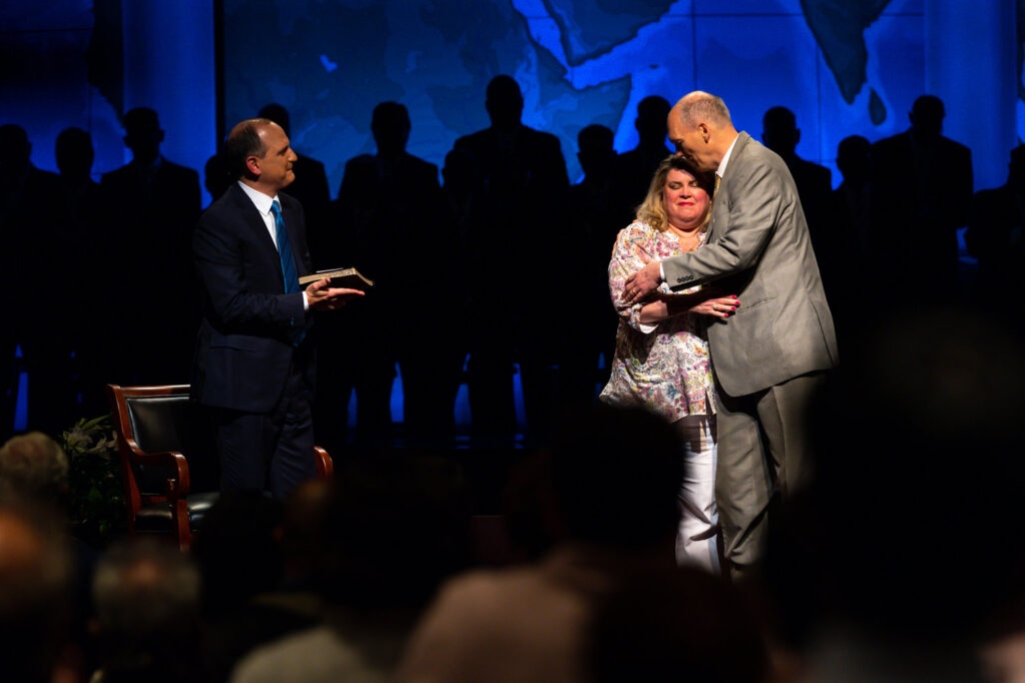
ASHVILLE (BP) – What does it mean for a Southern Baptist church to closely identify with the Baptist Faith and Message? When should the Baptist Faith and Message be updated? What is the difference between a creed, a confession and statement of faith?
Baptist Press asked scholars Albert Mohler and Greg Wills those questions and more in an episode of Baptist Press This Week.
“In my view, there is no difference,” Wills said of confessions, creeds and statements of faith. “All three words and phrases have been used historically to mean the same thing.” Wills is a professor of church history and director of professional doctoral studies at Southern Baptist Theological Seminary.
Both agreed that theological liberalism tried to muddy the water saying creeds have binding authority but a statement of faith does not.
“One of the things that liberalism maintained is that doctrine is not that important. It’s a secondary or even tertiary importance,” said Mohler, president of Southern Seminary. “And in that context, they pushed back at any sense that there is an obligation to have an allegiance to a certain form of interpretation of the Bible.”
Wills says Baptist have been a historically confessional people.
“And by the way, we’re not afraid to use the word creed,” Mohler added.
One of the articles Mohler is most known for is on which Christian doctrines are of primary, secondary and tertiary concern.
He says that when it comes to the Baptist Faith and Message, if it’s in there, it’s important.
“The Baptist Faith and Message speaks to those convictions that constitute what we believe and expect of one another,” he said.
Wills says what is included in a statement of faith establishes what a group believes and what sets it apart.
“A confession of faith includes essentials, fundamental beliefs, but it also includes things that distinguish one group of churches from another,” he said.
The preamble of the Baptist Faith and Message 2000 points back to the 1963 version saying, “The 1963 committee rightly sought to identify and affirm ‘certain definite doctrines that Baptists believe, cherish, and with which they have been and are now closely identified.’ Our living faith is established upon eternal truths.”
Questions have been swirling around the phrase “closely identified” since the 2022 SBC Annual Meeting as messengers have asked how they can understand it.
Wills says the power to understand is actually in the hands of the messengers.
“The wisdom comes from an informed set of messengers,” he said.
He said decisions on convictions and doctrines are, ultimately, established by messengers at the annual meeting and they are only made outside of the convention meeting when the group asks for help.
“When we have a difficult decision, we need a committee to study the matter and then to make a proposal to us,” he said.
Discussions on amending the Baptist Faith and Message to deal with role of women in pastoral ministry and other cultural issues have been ongoing since the 2022 meeting in Anaheim.
Mohler says that while Southern Baptists should be empowered to update their statement of faith, they shouldn’t do so hastily. He points to how the Baptist Faith and Message has been revised in roughly 40-year intervals in 1925, 1963 and 2000.
“If a denomination revises its confession of faith more often than that, it doesn’t lead to consensus. It leads to confusion,” he said. “Every time the SBC’s revised its confession of faith, it’s been because there has been a pressing issue that for the health of the convention needed to be decided.”
(EDITOR’S NOTE – Brandon Porter serves as Associate Vice President for Convention News at the SBC Executive Committee.)


